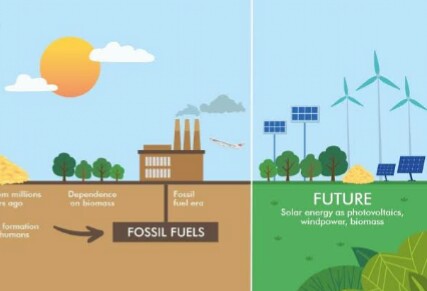Introduction Social Equity and Inclusivity
As the world focuses on transitioning to sustainable energy systems, it is essential to address the social dimensions of energy access and distribution.
Social equity and inclusivity are crucial factors in ensuring that the benefits of sustainable energy reach all segments of society, particularly those who are marginalized or disadvantaged.
This article explores the importance of social equity and inclusivity in sustainable energy, highlighting the challenges and potential solutions for achieving equitable and inclusive energy access and distribution.
Outlook Social Equity and Inclusivity
1. Understanding Energy Poverty and Social Inequality:
Energy poverty is a multidimensional issue that encompasses not only the lack of access to modern energy services but also the affordability, reliability, and quality of energy available. It disproportionately affects marginalized communities, including low-income households, rural populations, and disadvantaged urban areas. Social inequality further exacerbates energy poverty, as certain groups face barriers such as limited financial resources, inadequate infrastructure, and discrimination. Recognizing the intersectionality of social and energy issues is crucial for designing inclusive and equitable sustainable energy solutions.
2. Community Engagement and Empowerment:
Promoting social equity and inclusivity in sustainable energy requires active community engagement and empowerment. Communities should be involved in the decision-making processes, ensuring their perspectives, needs, and priorities are considered. Engaging with local stakeholders fosters a sense of ownership, enhances the cultural appropriateness of energy interventions, and increases the likelihood of successful implementation. Empowering communities through capacity-building, education, and training also enables them to actively participate in energy-related activities and benefit from sustainable energy initiatives.
3. Targeted Policies and Financing Mechanisms:
Governments and policymakers play a critical role in promoting social equity and inclusivity in sustainable energy. Developing targeted policies that prioritize energy access for marginalized communities and incentivize private sector participation can help bridge the energy gap. This can include measures such as subsidies, grants, or concessional financing for low-income households and off-grid areas. Implementing progressive tariff structures that consider income levels and providing support for energy-efficient technologies can also enhance affordability and accessibility.
4. Gender Equality and Women’s Empowerment:
Gender equality is an integral aspect of social equity and inclusivity in sustainable energy. Women often face specific energy challenges and have distinct roles and needs concerning energy access. Ensuring women’s participation in decision-making processes, promoting women’s entrepreneurship in the energy sector, and providing targeted support for women-led energy initiatives can contribute to more inclusive and gender-responsive sustainable energy solutions. Gender mainstreaming in policies and programs can help address gender disparities and empower women as agents of change.
5. Renewable Energy for Productive Uses:
Expanding sustainable energy access beyond basic household needs to productive uses can have a transformative impact on communities, particularly in rural and underserved areas. Promoting renewable energy solutions for income-generating activities, such as small-scale agriculture, agro-processing, and small businesses, can enhance economic opportunities and improve livelihoods. Creating enabling environments for entrepreneurial activities, including access to credit, technical support, and market linkages, can unlock the potential of sustainable energy for poverty reduction and social empowerment.
6. Data and Monitoring:
Effective monitoring and data collection are vital for understanding the energy needs and challenges of marginalized communities and tracking progress towards social equity and inclusivity in sustainable energy. Robust data can inform evidence-based decision-making, target interventions, and ensure accountability. Monitoring frameworks should include disaggregated data on energy access, socio-economic indicators, gender, and other relevant dimensions to identify gaps and inform targeted interventions.
Achieving social equity and inclusivity
Achieving social equity and inclusivity sustainable energy access and distribution is a complex and multifaceted task. It requires recognizing the unique needs and challenges faced by marginalized communities, engaging them as active participants, and implementing targeted policies and financing mechanisms. Gender equality, women’s empowerment, and the promotion of renewable energy for productive uses are crucial components of inclusive sustainable energy strategies. Additionally, robust data collection and monitoring mechanisms are necessary to track progress, identify gaps, and inform evidence-based decision-making.
By prioritizing social equity and inclusivity in sustainable energy initiatives, we can create a more just and sustainable energy future. Access to clean and reliable energy services empowers communities, improves livelihoods, and enhances overall well-being. Moreover, inclusive energy access contributes to achieving other sustainable development goals, such as poverty reduction, gender equality, and climate action.
Collaboration among governments, civil society organizations, private sector entities, and local communities is essential to drive forward the agenda of social equity and inclusivity in sustainable energy. This collaboration can facilitate knowledge sharing, resource mobilization, and the implementation of comprehensive and context-specific solutions. Multistakeholder partnerships can leverage expertise, resources, and innovative approaches to overcome barriers and promote equitable and inclusive energy systems.
Conclusion Social Equity and Inclusivity
Ultimately, the transition to sustainable energy should prioritize the needs and aspirations of all individuals and communities, leaving no one behind.
By embedding social equity and inclusivity principles into the fabric of sustainable energy policies, programs, and investments, we can create a more equitable, resilient, and sustainable energy landscape that benefits society as a whole.
https://www.exaputra.com/2023/07/social-equity-and-inclusivity-in.html
Renewable Energy
The Positive Effects We’ve Had on Others Are Profound, Whether We Know It or Not
 There’s a theory that most people underestimate the positive effects they’ve had on other people.
There’s a theory that most people underestimate the positive effects they’ve had on other people.
Yes, that’s the theme of “It’s a Wonderful Life,” but it’s also the core of the 1995 film “Mr. Holland’s Opus,” in which a music teacher who deemed that his life had been a failure because he never completed writing a great symphony, is gently and beautifully corrected. Please see below.
The Positive Effects We’ve Had on Others Are Profound, Whether We Know It or Not
Renewable Energy
Renewable Energy Concepts Can’t Violate the Laws of Physics
 In the early days of 2GreenEnergy, my people and I were vigorously engaged in finding solid ideas in cleantech that needed funding in order to move forward.
In the early days of 2GreenEnergy, my people and I were vigorously engaged in finding solid ideas in cleantech that needed funding in order to move forward.
I vividly remember a conversation with a guy in Maryland who was trying to explain the (ostensible) breakthrough that he and his team had made in hydrokinetics. When I was having trouble visualizing what we was talking about, he asked me to “think of it as a river in a box.”
“Oh!” I exclaimed. “You mean you take a box full of standing water, add energy to it get it moving, then extract that energy, leaving you with more energy that you added to it.”
“Exactly.”
I politely explained that the laws of physics, specifically the first and second laws of thermodynamics, make this impossible.
He wasn’t through, however, and insisted that, in his office, his people had constructed a “working model.”
Here’s where my tone descended into something less than 100% polite. I told him that he may think he has a working model, but he’s wrong; if he believes this, he’s ignorant; if he doesn’t, but is conducting this conversation anyway, he’s a fraud.
“But don’t you want to come see it?” he implored.
“No. Not only would not fly across the country to see whatever it is you claim to have built, I wouldn’t walk across the street to a “working model” of something that is theoretically impossible.”
—
I tell this story because the claim made at the upper left is essentially identical. You’re pumping water up out of a stream, and then claiming to extract more energy when the water flows back into the stream.
Of course, social media today is rife with complete crap like this. We’ve devolved to a point where defrauding money out of idiots is rapidly replacing baseball as our national pastime.
Renewable Energy
What Canada Has that the U.S. Doesn’t
 Until recently, I would have moose, maple syrup, and frozen tundra.
Until recently, I would have moose, maple syrup, and frozen tundra.
Now I would say: decency, honesty, and class.
-
Greenhouse Gases7 months ago
Guest post: Why China is still building new coal – and when it might stop
-
Climate Change7 months ago
Guest post: Why China is still building new coal – and when it might stop
-

 Greenhouse Gases2 years ago
Greenhouse Gases2 years ago嘉宾来稿:满足中国增长的用电需求 光伏加储能“比新建煤电更实惠”
-
Climate Change2 years ago
Bill Discounting Climate Change in Florida’s Energy Policy Awaits DeSantis’ Approval
-
Climate Change2 years ago
Spanish-language misinformation on renewable energy spreads online, report shows
-

 Climate Change2 years ago
Climate Change2 years ago嘉宾来稿:满足中国增长的用电需求 光伏加储能“比新建煤电更实惠”
-
Climate Change Videos2 years ago
The toxic gas flares fuelling Nigeria’s climate change – BBC News
-

 Carbon Footprint2 years ago
Carbon Footprint2 years agoUS SEC’s Climate Disclosure Rules Spur Renewed Interest in Carbon Credits




